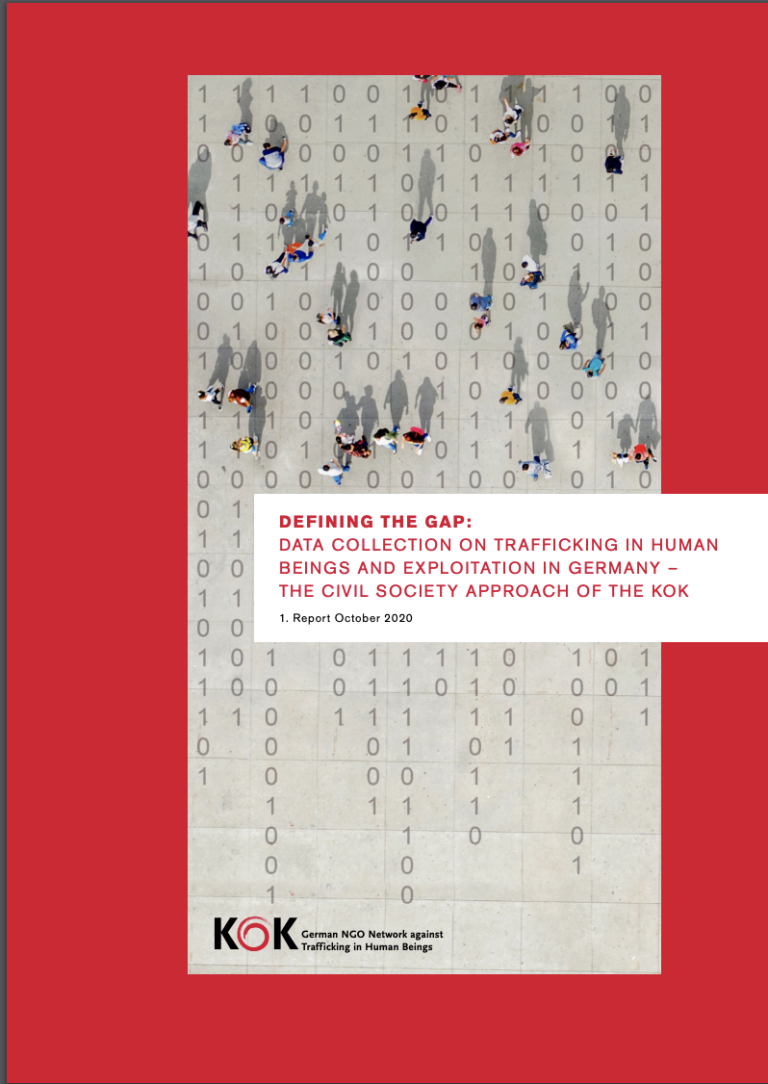The collection of empirical data on the phenomenon of trafficking in human beings and exploitation is essential in determining the extent of this human rights violation, as well as in deriving from the findings policies and measures for the protection of those affected and the fight against this crime.
At the same time, data collection involves a variety of challenges. Trafficking in human beings and exploitation often take place in secret and are so-called control offenses. In most cases, therefore, the occurrence of offenses is determined in the course of checks by the police or other authorities – they often go unnoticed without control. However, low numbers of cases lead to the fact that the problem is seen as small, and that controls, as well as resources for the protection of those affected, are reduced. In addition to well-known sectors such as sex work, agriculture or construction, the care sector and domestic work can also be mentioned as examples. These are areas that are not easy to control. In addition, data collection in the field of trafficking in human beings is characterized by the high sensitivity of its content and by high demands on data protection and confidentiality.
There is as yet no data collection that measures the state of enforcement of the rights of the persons concerned. Germany is a party to many human rights conventions giving rise to the obligation to guarantee protection against trafficking in human beings and to guarantee rights to the persons concerned as well as to ensure that they are recognized and that redress and compensation are granted to them. The EU Anti-Trafficking Directive also requires Germany to report regularly on the results of anti-trafficking measures. According to the Directive, it is the task of each EU Member State to establish a National Rapporteur or equivalent mechanism, to carry out „assessments of trends in trafficking in human beings, the measuring of results of anti-trafficking measures, including the gathering of statistics in close cooperation with relevant civil society organizations working in this field (…)“ (Lancaster University 2018). So far, this objective has been poorly implemented in Germany.

